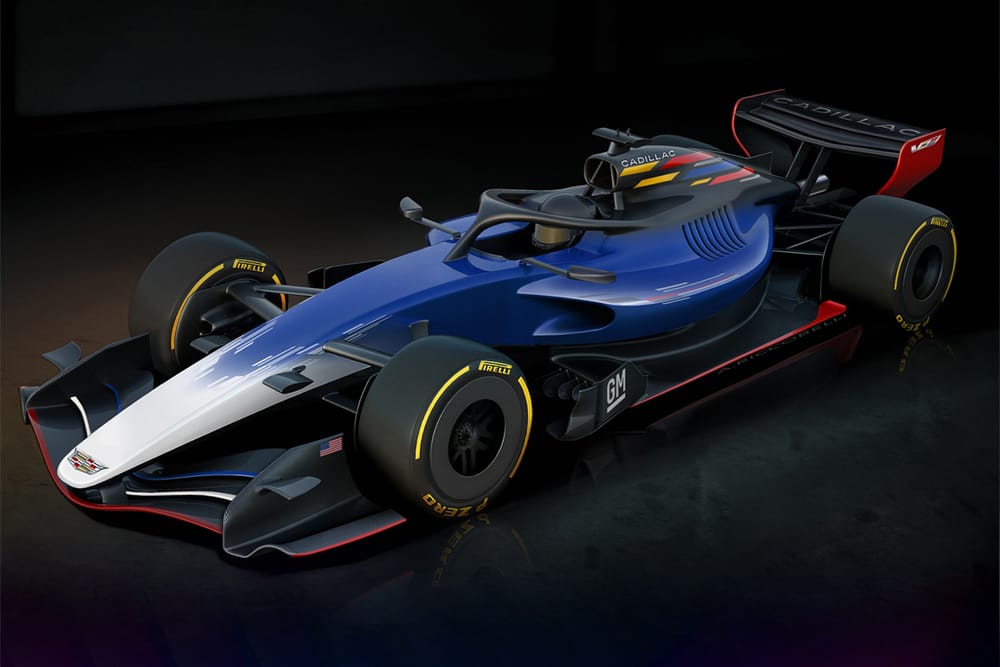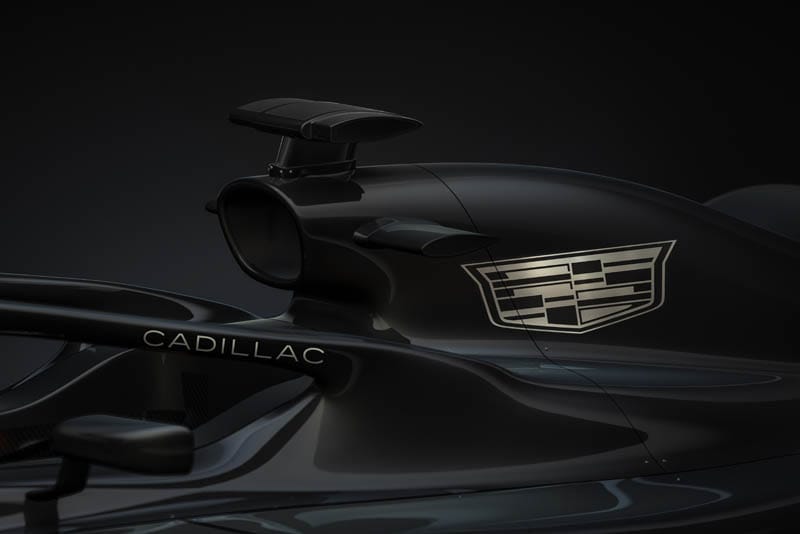Up Next

Cadillac and General Motors will enter Formula 1 with a brand new team in 2026 without the Andretti name attached to it.
An agreement in principle between General Motors, Cadillac and F1 will, barring any unexpected setback, end in a new 11th team after all.
That is despite the original attempt at getting on the grid as 'Andretti Cadillac' failing.
The first proposal was set up by Michael Andretti's Andretti Global organisation and came with the blessing of Cadillac's parent company General Motors.
It was tempted by the idea of having one of its brands represented in F1 and there was a lot of talk about the intentions to utilise Cadillac and GM technology and infrastructure in the F1 project.
A few months later came notice of GM's intention of producing its own engine from 2028, too. This was done with the target of convincing F1 it wasn't just a glorified sponsorship deal but a proper works team.
That's what this accepted entry, as Cadillac F1, leans into. It’s GM's F1 team, fully embracing the Cadillac brand, rather than an Andretti F1 team that has Cadillac stickers on it.
GM is set to own the team alongside its partner TWG Global, and going full Cadillac means we can expect it to really be in the Cadillac Racing image: there is already a low-res and questionable render shared by GM and Cadillac of a blue and white livery with Cadillac Racing accents.
It will start life as a customer team before morphing into a fully-fledged works team when the GM/Cadillac engine is ready - this was originally slated to be 2028, but is now being referred to as "by the end of the decade".
The arrangement is an F1 version of what 'Cadillac Racing' has been in sportscars - where its top-level entry is developed in conjunction with Dallara and run by the likes of Chip Ganassi Racing.
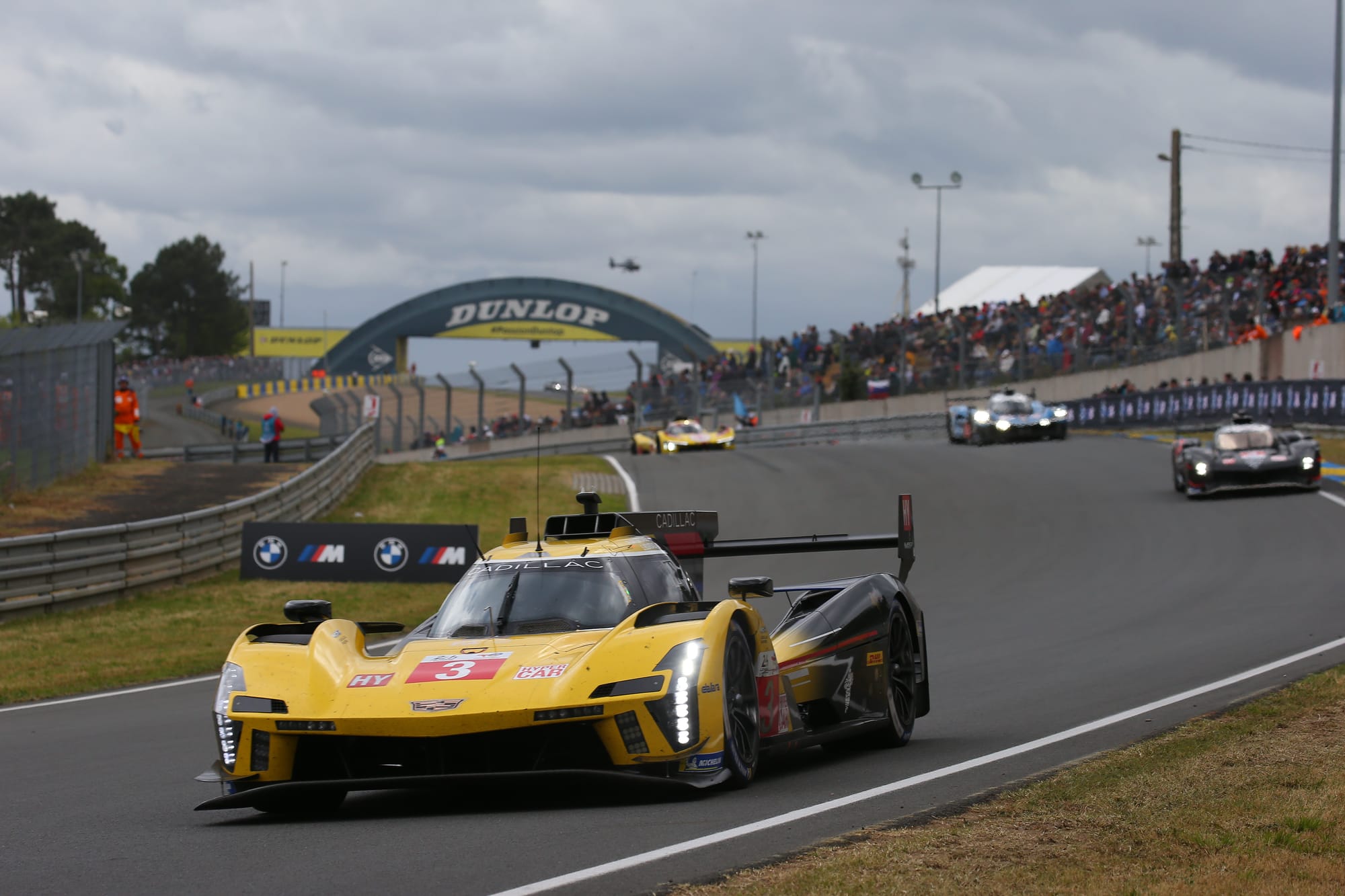
And this is a familiar model: specialist organisations building and developing cars, with manufacturer support, that run under a certain banner. Several F1 teams are run this way, including Mercedes.
In this case, the specialist unit is TWG Global, running under the Cadillac banner, with GM having a big stake in the whole thing.
And there's a name there that will be new to you.
WHAT IS TWG - AND WHERE'S ANDRETTI?
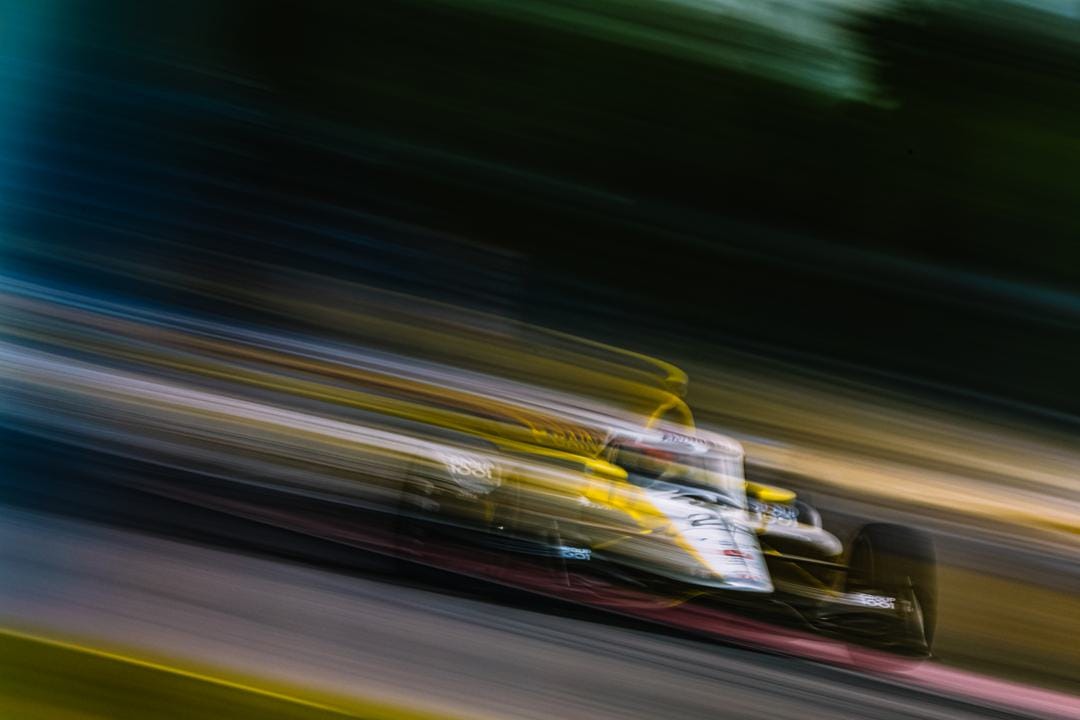
This is no longer a project with Andretti in the main name, as it was at the start of the year.
What was built by Andretti Global is still very much the cornerstone of the project but it is headed now by investor Dan Towriss rather than Michael Andretti.
But there was no reference to Michael, or his eponymous company, in F1's official release, just a mention of Towriss as CEO of TWG Global's "motorsport business". And that is Andretti Global, because - as was revealed in the GM and Cadillac communication - Andretti is now owned and operated by TWG Global.
So, a new name to signify a break from what came before. But what is Andretti Global in spirit, if not in name, will still have a very big part to play in running the entry.
It has invested in the US headquarters and UK satellite facility, funded extensive aerodynamic and chassis development work, and recruited people.
A lot of significantly experienced F1 people are involved already, with a leadership core that feels distinctly Renault: Nick Chester is technical director, ex-F1 chief technical officer Pat Symonds is an advisor, and the highly regarded Rob White is chief operating officer. They all worked together in the past as what’s now Alpine.
The recruitment effort and facility building has actually been referenced indirectly by F1, which mentioned the "operational milestones" this entry has achieved this year. But that work done under the Andretti brand now gets consumed by the TWG identity.
This includes not just Towriss but Mark Walter, CEO of investment firm Guggenheim Partners and a sports franchise investor, who is a key player.
It's likely TWG will help cough up at least a portion of whatever anti-dilution fund this new entry has to pay to compensate existing teams for the share of future prize money Cadillac will take.
That will likely be more than the current $200million fee because Cadillac will be signing up to the next Concorde Agreement from 2026, which is when the anti-dilution fund is expected to be at least tripled. The BBC reports that Cadillac/TWG will pay $450m to secure the 11th team slot.
OK, BUT WHERE'S MICHAEL ANDRETTI?
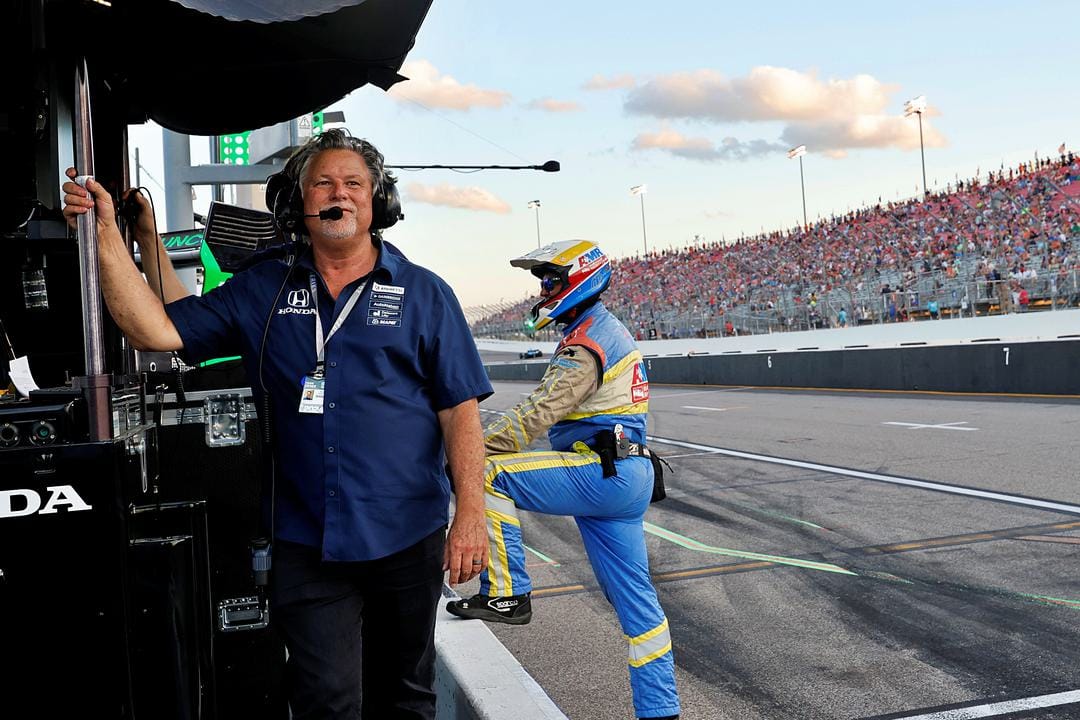
Michael Andretti was obviously key to this to begin with. It was his desire to get on the F1 grid that started everything, and he’s driven it to this point.
But he's no longer running the show day to day. Sidelined, reduced role, however you want to describe it: Andretti’s not the man in charge anymore.
The only official nod to Michael's original vision is the fact his father Mario Andretti, the 1978 F1 world champion, will have an ambassadorial role and sit on the board of directors.
Michael Andretti couldn't be a frontline part of this project for it to be accepted. He clashed too much with stakeholders in F1: not just F1 itself, but the teams. He has been confrontational and controversial, and whether or not you agree with his methods or how he has been perceived, he has been a big reason why the project got to this point but could go no further.
Some would say that amounts to a personal vendetta against him. Some would say it just eroded any confidence or benefit of the doubt that the project could have had, in terms of what it was doing and what it was capable of.
The truth is probably somewhere in the middle. He's still involved in Andretti Global as an adviser, and it wouldn't be surprising at all to see him at races, or talking about it when he can.
But he has had to accept that he's not running the show and isn't getting a team into F1 on his terms or even with his name.
WHAT ENGINE WILL IT USE?
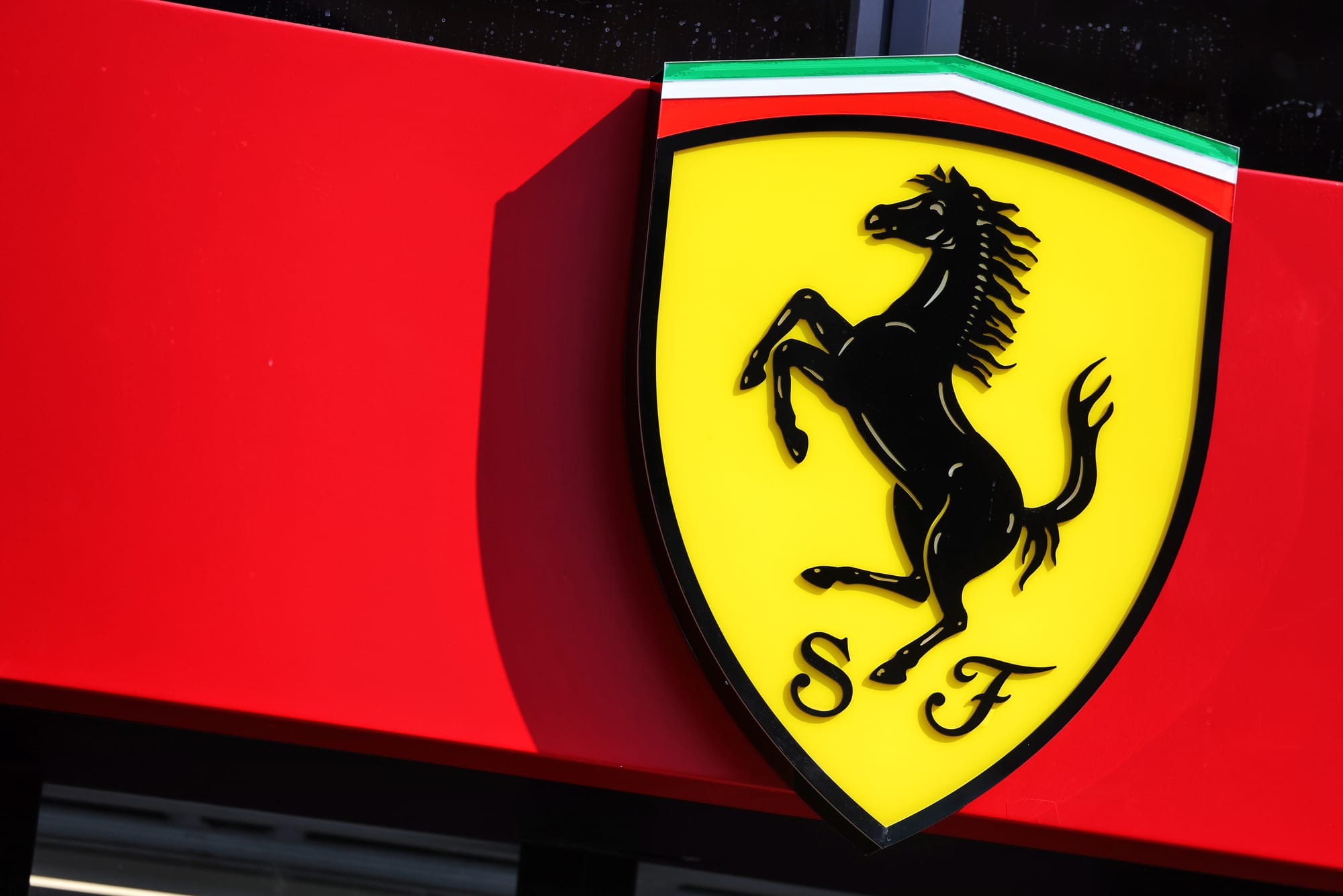
It's not been confirmed, but the project may well have a Ferrari engine for the first two years, because there will be no GM works engine for a while longer.
It is a sensible starting point to be a customer, and Ferrari would be a logical choice.
It has plenty of experience supplying teams with engines and other components and has the capacity with current customer Sauber becoming Audi's works team in 2026 and therefore having its own engine. And it supplies F1's most recent new team, Haas.
A deal in which Cadillac can purchase key components like the gearbox and rear suspension - meaning it will not have to worry about them while it gets tooled up more in the short-term - has obvious benefits.
And there are also a lot of people involved in the project who have worked with Ferrari before. They know what they'd be getting.
Ferrari seems to be the preference but that remains speculation for now. Honda is also an option, and is also a guaranteed fallback if needed. That's because FIA regulations that can impose a supply on the manufacturer that is due to supply the fewest teams and isn't a new participant - which for 2026 will be Honda, as it's currently only set to supply Aston Martin then.
It will be better to strike a deal with a manufacturer willingly than take a forced fallback, and that will be the aim. Cadillac needs a quality, pragmatic short-term solution, and one that is capable of extending further if there are any delays to the original 2028 works engine timeline.
CAN IT BE READY FOR 2026?
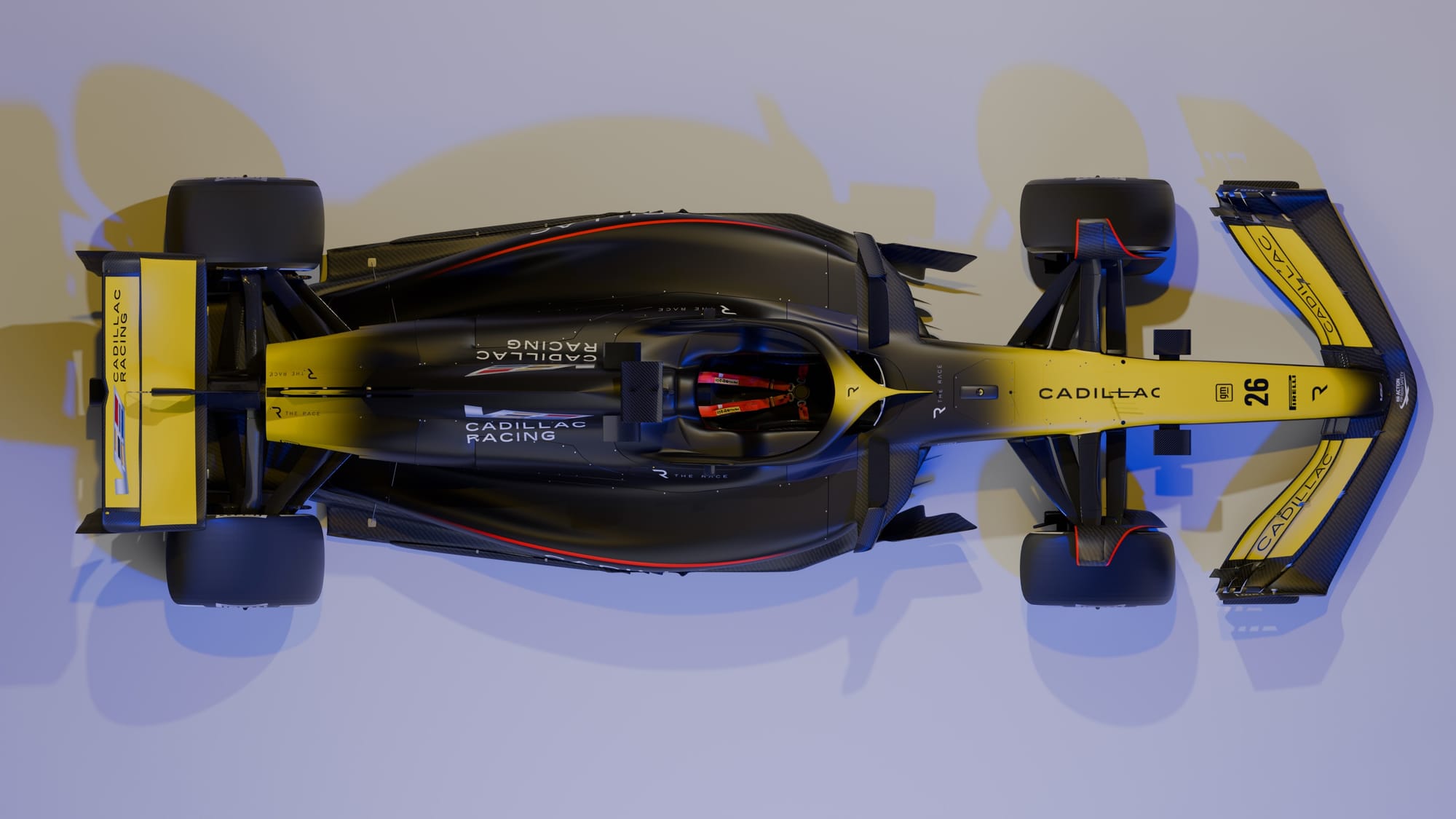
The organisation formerly publicly known as Andretti Global has done a lot to get to this point. It's recruited heavily, but it probably still needs to get three or four times bigger, just to have a fighting chance in 2026 - even as a customer.
And to become a works team beyond that, there will be even more staffing needs, even if the engine division falls to GM/Cadillac rather than the race team.
But this team seems reasonably well progressed. And development is where it gets interesting. As Andretti, it's been doing a lot of aerodynamic development using the Toyota windtunnel in Germany, plus a lot of chassis work and manufacturing, and even some crash testing.
It's been a serious undertaking with a key benefit: because it hasn't had an entry, it's not bound by the regulations that currently limit the other teams on development.
That goes for the windtunnel and CFD work limitations that exist, but also the specific 2026 aero testing ban that's in place for the current 10 teams until January 1 2025.
So, this is a smaller organisation, a much less experienced organisation, but one with a head start in a big area.
We don't know at what point it needed to or will need to freeze that work, or if it will have to freeze it at all. Then the question becomes how much of an advantage does it confer, or will it actually result in, if it's been utilised properly?
There's still a huge amount to do. No doubt it's up against it for the start of its customer era. But looking at it beyond that, as a ramp up to 2028 and being a works team, it's a reasonable glide path that will include a couple of years of learning in the real world.
WHY'S IT BEING LET IN NOW?
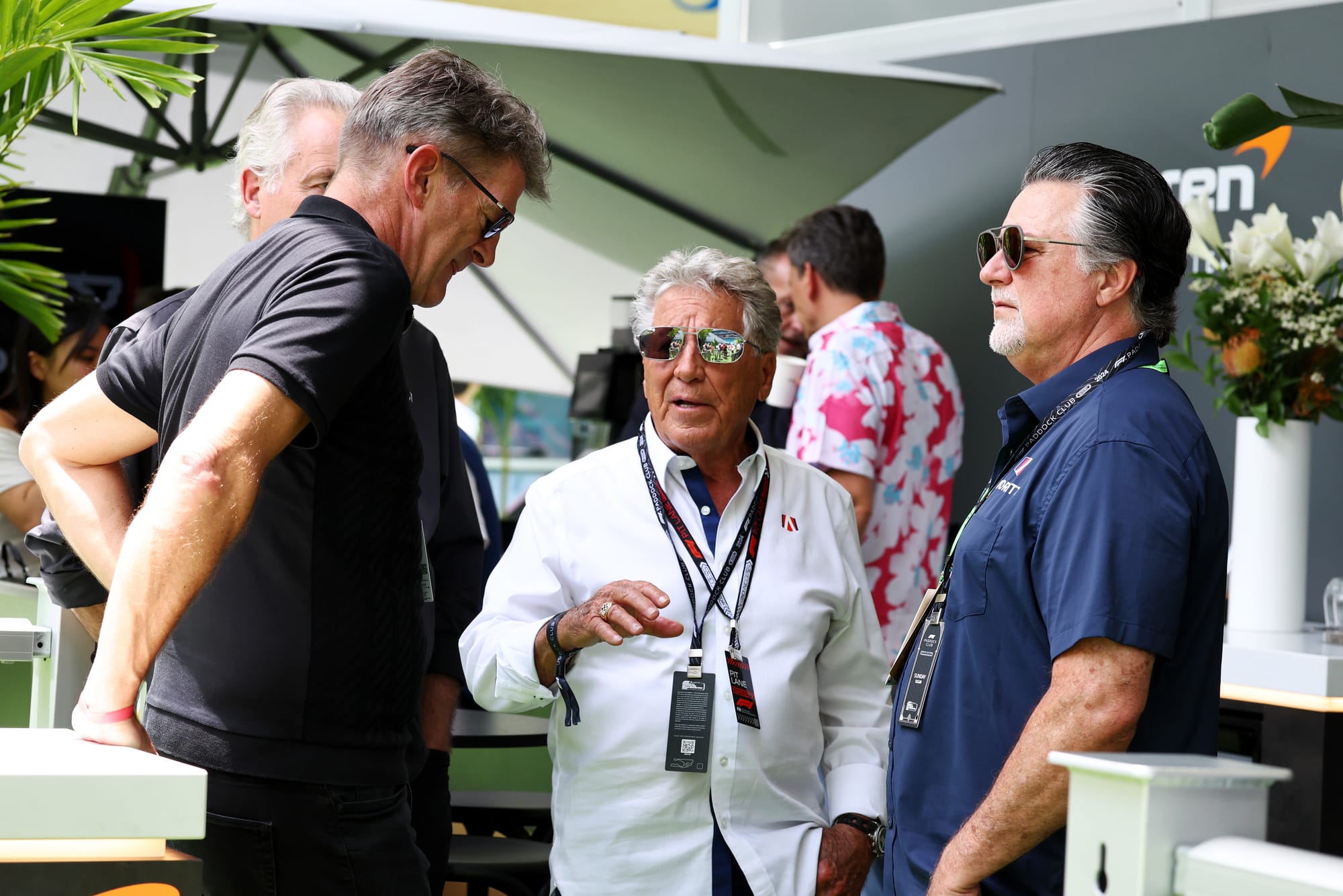
It's a fair question that's sparked a lot of speculation about what the real reason is behind this, like the Department of Justice investigation sparked by Andretti Cadillac being rejected.
The fact the federal government wanted to take a close look at why F1 was closing itself off to General Motors, a massive job maker in the US, was not an ideal situation for F1 owner Liberty Media. Some believe F1 is now just bowing to that pressure, to get the DoJ off its back and avoid a fine or sanctions or whatever the penalty could be for being anti-competition.
Even if it's not the primary motivation to do it, it's a massive benefit to not have that pressure and scrutiny and a big problem being dragged out.
But it isn't the only reason. Otherwise the team would be let on the grid in exactly the form that it pitched back in January. Which isn’t happening.
Also, reacting to a DoJ investigation wouldn't explain why F1 was saying openly at the start of the year that it would look at the application differently in 2028, when it was ready to be a GM works team.
There were also plenty of private admissions last year, when the intention to make a GM/Cadillac engine was first announced, that this kind of investment was exactly what F1 was interested in from a potential new team.
It would be blind to the facts to say this is purely a result of legal pressure. The entry will be subtly but significantly different in its composition and with its backing from GM and other partners.
And there are multiple benefits to F1 here.
It gets a new manufacturer on the grid, which is significant seeing as Renault is leaving as an engine supplier. Michael Andretti, who had that tense relationship with key F1 figures including outgoing Liberty CEO Greg Maffei, has been sidelined. And the investigation in the US will presumably be dropped now GM’s getting on the grid after all.
WHO WILL THE DRIVERS BE?
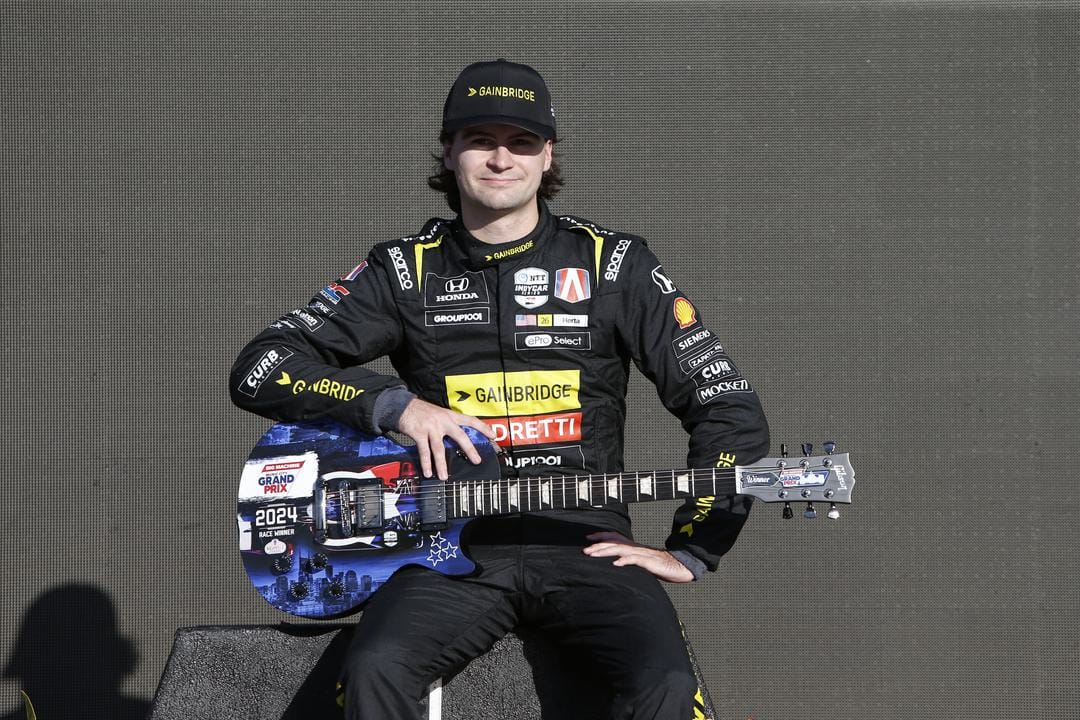
Previously, Michael Andretti was keen on this being an American team with American drivers. And Colton Herta was his number one pick.
Towriss is also known to be a keen supporter of Herta. The IndyCar race winner is close to a superlicence at the moment but still not quite there, so needs to resolve that. It’s the perennial hurdle to Herta’s F1 prospects.
Beyond Herta, there are few obvious candidates for an American driver. Logan Sargeant raced in F1 for one and a half seasons at Williams but got dropped as his performances were poor and he crashed too much. American youngster Jak Crawford, an Aston Martin junior, has done a decent job in Formula 2 this season and is actually Andretti's Formula E reserve and development driver - so he could be a candidate.
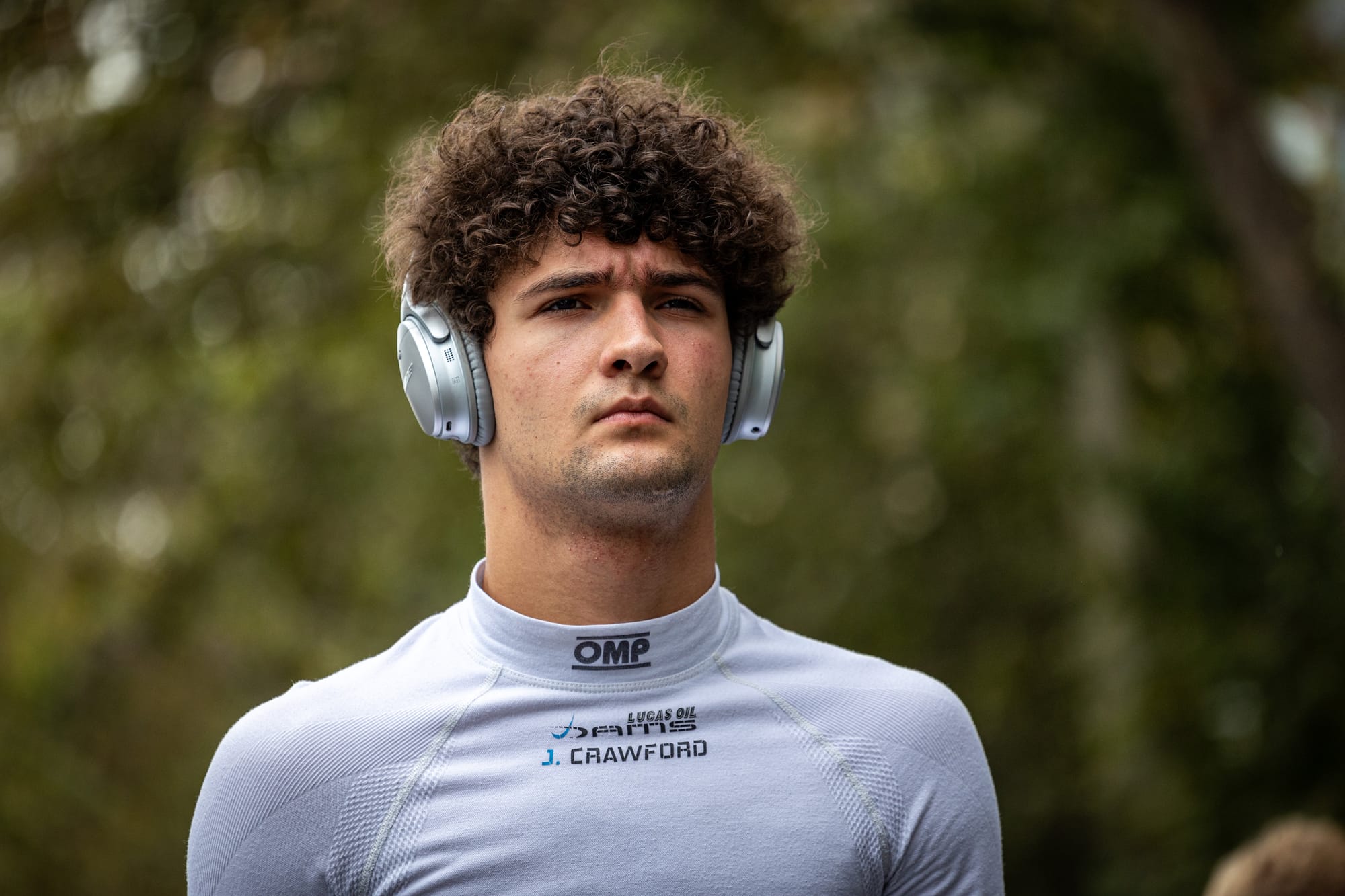
But it's unclear what the exact priority would be now that the project is more under the GM banner. The tendency for new teams - well, any team really - is to go for experience in at least one of the seats.
Lots of drivers are locked down at the moment but there are some interesting 2026 free agents like Valtteri Bottas, or maybe Yuki Tsunoda and, if experience isn't the way to go, younger and previously overlooked choices like Felipe Drugovich are thought to be sniffing around already.
IS 11 TEAMS THE MAXIMUM?
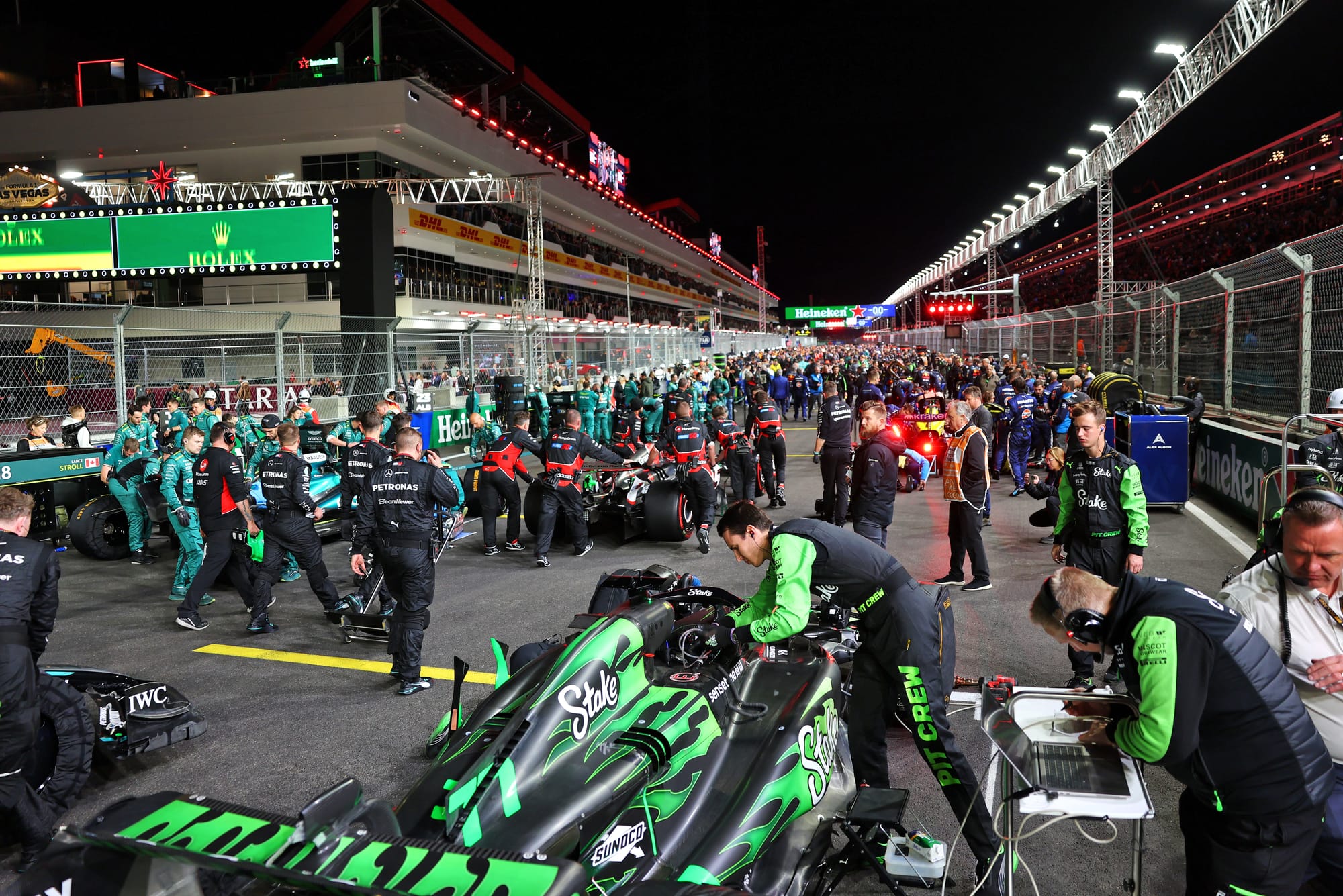
One final point worth considering is whether this is the maximum point of expansion, given F1 wasn’t really keen on even growing to 11 teams.
The short answer is that the grid could get even bigger still. There is capacity in the regulations and the commercial agreements between F1 and the teams to have 12 teams.
Also, F1 always wants to leave room in case another interesting works team emerges as an option - for example Toyota, if its technical partnership with Haas leaves it wanting more.
But if F1 (and the existing entrants) were wary of negative consequences of adding one team to the grid then adding a second would presumably have the same concerns and face the same opposition.
And for now, we probably should all be grateful an interesting 11th team is getting in.

